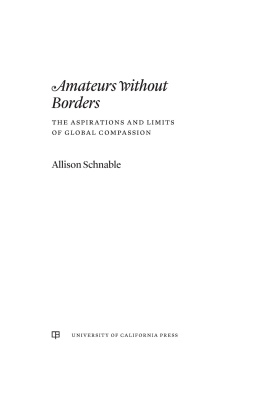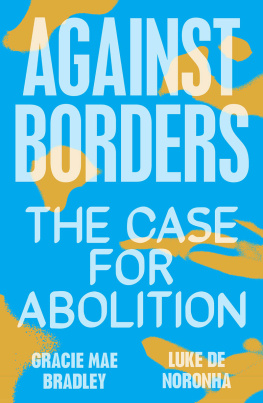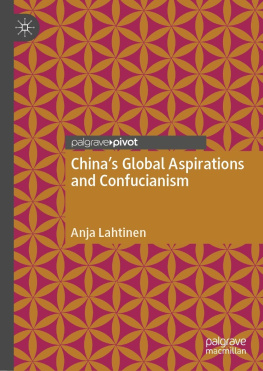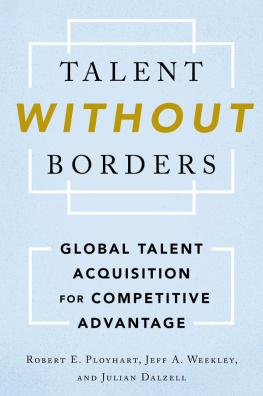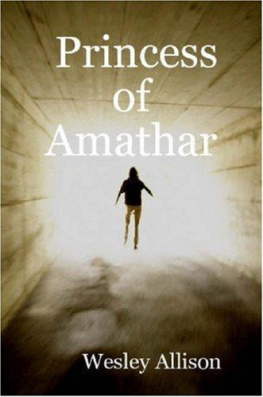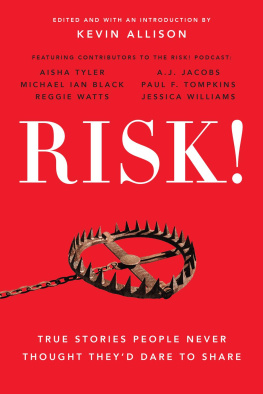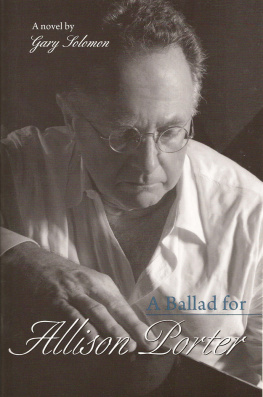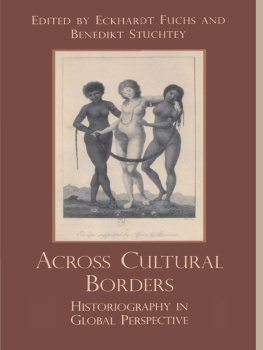University of California Press
Oakland, California
2021 by Allison Schnable
Library of Congress Cataloging-in-Publication Data
Names: Schnable, Allison, 1981 author.
Title: Amateurs without borders : the aspirations and limits of global compassion / Allison Schnable.
Description: Oakland, California : University of California Press, [2021] | Includes bibliographical references and index.
Identifiers: LCCN 2020026932 (print) | LCCN 2020026933 (ebook) | ISBN 9780520300941 (cloth) | ISBN 9780520300958 (paperback) | ISBN 9780520972124 (epub)
Subjects: LCSH : Non-governmental organizationsHistory20th century. | Non-governmental organizationsHistory21st century.
Classification: LCC JZ 4841 . S 35 2021 (print) | LCC JZ 4841 (ebook) | DDC 361.7/7dc23
LC record available at https://lccn.loc.gov/2020026932
LC ebook record available at https://lccn.loc.gov/2020026933
Manufactured in the United States of America
29 28 27 26 25 24 23 22 21 20
10 9 8 7 6 5 4 3 2 1
Acknowledgments
This project had its beginnings in late-night conversations with fellow Peace Corps volunteers under the Senegalese moon. But it took shape thanks to the resources of an intellectual community that I acknowledge here with gratitude.
I am grateful to have received the Lake Institute Dissertation Fellowship and the Charlotte Newcombe Dissertation Fellowship, which provided ample funding and time to carry out this research as a PhD student. At Princeton University, the Sociology Department, Center for the Study of Religion, Center for Arts and Cultural Policy Studies, Fellowship of Woodrow Wilson Scholars, and Program on International and Regional Studies also funded my research and offered chances to present my work in progress; this book is stronger for it. Thanks also to the Faculty Writing Groups at Indiana University, led by Laura Plummer, for creating a congenial environment in which I could work on this manuscript.
The Center for the Study of Religion was my intellectual home at Princeton, and I thank Director Emeritus Robert Wuthnow, Associate Director Jenny Wiley Legath, and Center Manager Anita Kline for cultivating such a remarkable intellectual environment there. The smart and congenial fellows I encountered at CSR over seven years are too many to name, but I especially acknowledge Gill Frank, Erin Johnston, and Carol Ann MacGregor. LiErin Probasco, Steve Offutt, and Amy Reynolds were particularly helpful interlocutors on the questions of religion and development.
Thank you to Woody Powell, Rob Reich, Johanna Mair, and Paul Brest for invitations to the Stanford Center on Philanthropy and Civil Society Junior Scholars Forum in 2014 and 2019. The feedback at these workshops and the community of scholars you fostered there are unparalleled. I also thank Anke Schwittay and Anne-Meike Fechter for convening a workshop on citizen aid at the University of Sussex in 2018 and all of the attendees for a very fruitful exchange of ideas. I especially note Sara Kinsbergen, who has done leading work on similar organizations in the Netherlands and who has been very gracious in sharing her data, and Susan Appe, who has been a wonderful colleague in looking at capacity building for grassroots international NGOs. I am grateful to Ann Swidler and Judith Lasker for their thoughtful comments on this manuscript, and to Naomi Schneider and her crack team at University of California Press for shepherding the book into print.
This work was realized with the help of several top-shelf research assistants. Anna Graziano oversaw the collection of website addresses, Michael Franklin assisted with topic modeling, Colin Fisk assisted with graphs, and April Byrne and Janet Jock capably handled fact checking and a number of editorial tasks. Thank you to then fellow graduate students Manish Nag, who wrote a program to help me collect data from websites, and Beth Sully, who was my travel companion in East Africa.
I am deeply grateful for the guidance and generosity of Princeton University Sociology faculty, and particularly the members of my dissertation committee, each of whom has shaped me as a scholar and person: Robert Wuthnow, Miguel Centeno, Paul DiMaggio, and Stan Katz. I have been uncommonly lucky to work with you all.
The ONeill School of Public and Environmental Affairs at Indiana University could not have been more generous or encouraging to a junior faculty member. I thank my faculty colleagues, graduate students, and the schools leadership past and present, particularly Kirsten Grnbjerg and Michael McGuire. I want to acknowledge with thanks Indiana Universitys efforts to help faculty balance their work and family commitments; in another time or place, I would have had to choose between this project and my family. The Lilly Family School of Philanthropy has also provided support and intellectual community for my work. Thanks to Tim Hallett and Fabio Rojas for their suggestions on the manuscript at key junctures, and to the rest of the Sociology Department at Indiana University for welcoming a redheaded stepchild into the departments community.
Perhaps the best thing about academic life is the opportunity to work with ones friends. Sofya Aptekar, Yael Berda, Jennifer Brass, Chris DeSante, Wes Longhofer, Rachel Sullivan Robinson, Rafael Treibich, and Cristobal Young have provided help when I asked for it and encouragement when I needed it; thank you, with love. I thank my family and especially my mother, June Youatt, whose example made all of this seem possible.
The leaders and volunteers of the organizations I write about here did me a great kindness in speaking frankly about their work and in many cases inviting me into their homes. Although I critique some of their ideas and efforts here, I hope I have lived up to my promise not to be glib. Its much easier to critique from the sidelines than to do the messy work of trying to translate compassion into real improvement in the lives of the poor. The volunteers I discuss here were doubly compassionate, first in their efforts abroad and second in making themselves vulnerable to the questions of an inquisitive stranger. These people have my respect and gratitude.
Introduction
The only ice-cream shop in Butare, Rwanda, is the offspring of a chance encounter at the Sundance Institute. The leader of a womens drumming group from East Africa fell into conversation with two restaurateurs from Brooklyn who had recently opened an ice-cream shop that was winning the hearts of New Yorks foodies. In the space of a few months, the plan emerged for Inzozi Nziza: an ice-cream parlor in a Rwandan university neighborhood, funded by the Brooklyn restaurateurs and staffed by the young women who played in the drumming group. The young women would receive training in English and business management, while the appeal of ice cream on hot East African afternoons would eventually make the project self-sustaining. The three partners hired a former Peace Corps volunteer to oversee the training and launch of the shop in Butare, and in January 2011 the new organization was registered with the IRS as Blue Marble Dreams. Suddenly the Brooklyn foodies were the heads of a nongovernmental organization (NGO).
Blue Marble Dreams is one of more than 10,000 new international aid organizations founded by Americans since 1990. Thanks to the world-shrinking power of globalization, Americans find themselves connected to distant communities in the poor regions of the world. Beneath the global exchanges of trade and the movements of a cosmopolitan elite, American citizens are more quietly forging global ties through immigration, tourism, volunteering, study, work, and adoption. These ties have made possible a new wave of grassroots development aid. In 1990, there were just over 1,000 international aid organizations registered with the US Internal Revenue Service. Over the years the numbers have grown, such that more than 1,300


